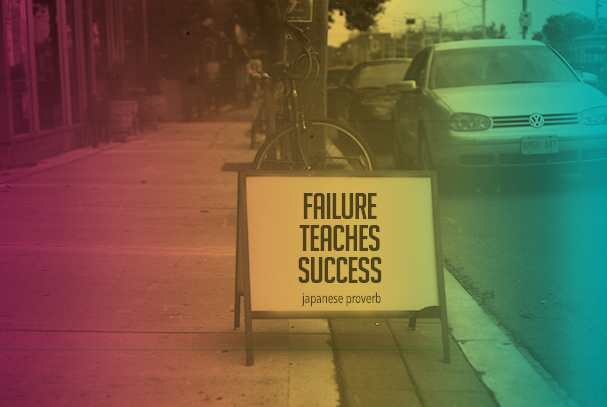In this series of posts, Influencers explain what they wish they could fix — and how. Read all the stories here and write your own (please include the hashtag #FixIt in the body of your post).
The complexity, competitive landscape — and shrinking budgets of many enterprises – requires a dynamic workforce with multiple competencies to remain competitive.
In today’s lightning fast, roller-coaster business environment, the concept of solely developing deep expertise in one skillset in order to sequentially climb each rung of the career ladder to get to the top is an anachronism. Yet, many organizations and employees are still in the dark, mistakenly believing that supporting this strategy leads to the greatest probability of career and company success.This handicaps, if not completely derails them both.
Why?
Because the complexity, competitive landscape — and shrinking budgets of many enterprises – requires a dynamic workforce with multiple competencies to remain competitive. The traditional career ladder does not offer the diversity of career opportunities to employees to grow outside their single focus and thus provide additional benefit to the corporation.
So fix it?
No!
Ditch the metaphor of the career ladder and replace it with a triangle flipped on its head.
The wide bottom becomes the top and the apex is the bottom. Everyone starting at the bottom still wants to reach the top. And, many companies preach just that. But, the journey to success is now nonlinear, seemingly circuitous, requiring varied skillsets and interdisciplinary talents. The result is that both the employee and company benefit from an ever-expanding opportunity horizon and competitive advantage despite the vicissitudes of the general economy or how the business landscape zigs or zags.
Certainly this strategy has been fundamental to my sustained success as an owner and executive in multiple industries from filmed entertainment, to music, to sports, movie theaters, digital technology, software applications – even education.
I employed three core tenets as an executive and corporate leader:
Embrace constant and never-ending learning.
Curiosity informs passion — an invaluable career and company attitude.
Curiosity informs passion — an invaluable career and company attitude. A life of continuous learning allowed me to embrace willingly what I did not know. In the ’70s, early in my executive career at Columbia Pictures, emergent technologies like the audio video cassette revolution were shifting the power away from theaters and studios to audience control. Instead of becoming paralyzed, frightened or defending an incumbency from a ferocious challenger, I decided to confront the conventional thinking of that time.
Curious, I set out to learn everything I could about this new technology. Columbia Chief Executives saw movie cassettes as a destroyer of the theatrical motion picture business. I perceived that if it took hold, its benefits would outweigh its burdens. I became a passionate advocate for it. My exhortations to embrace this technology fell on deaf ears and the company decided to license its entire library of movies to RCA. Columbia lost millions and millions of dollars in profit in addition to the potential revenues of crafting an entirely new business.
This experience catapulted my career. I was viewed as a visionary who could lead the company to future success, and I became the head of the studio in a very short time. The irony is that years later, as CEO of Sony, (which acquired Columbia Pictures), I knew that owning this library was critical to our own ongoing success. I was forced to buy it back at a very expensive price, from Jack Welch who then owned it at GE, (having bought it from RCA).
Develop unconventional skillsets.
I realized early on how important music was to film and television’s success. In particular, I gleaned how the audience’s emotion was as much dependent on the musical palette as it was on the dialogue. I also saw how critical it was to connect filmmakers (who really didn’t understand music) to music professionals, and the music people (who really didn’t understand film) to filmmakers. I decided that even though music wasn’t in my DNA, and that hybrid music/film organizations were a rarity, I had to broaden my existing skillset to navigate my medium’s future.
I decided that even though music wasn’t in my DNA, and that hybrid music/film organizations were a rarity, I had to broaden my existing skillset to navigate my medium’s future.
I didn’t know the music language. I didn’t know the people. I didn’t know the technology. But, I knew I had to know. I steeped myself in the process, took a big gamble, and merged my entire young movie company, Casablanca Filmworks, with a music company to create Casablanca Record and Filmworks, and then later, Polygram. By developing this unconventional skillset, it allowed our organizations to be at the forefront of such Academy Award-nominated and financially successful scores and albums like Midnight Express, Flashdance,Gorillas in the Mist, Rain Man and Batman.
Create a broader set of relationships.
I proactively developed an ever-widening circle of relationships outside of the film business to reframe both how I defined myself and how others perceived me in the broadest possible way. My intention was to demonstrate a unique value-add that would distinguish me from my competition. I had the epiphany that the business I was in, at its most expansive, was that of emotionally connecting artists with audiences. Wherever an artist was, wherever an audience was, I’d be able to connect them whether it was television, motion pictures, sports or digital technology. I wasn’t just in the movie or entertainment business, I was in the emotional transportation business.
I wasn’t just in the movie or entertainment business, I was in the emotional transportation business.
This reframing strategy allowed me to envision and capitalize on the widest part of the career triangle and launched me into the theatrical exhibition business (Loews Theaters), the digital media business (Mandalay Digital Media), and the sports business, (Mandalay Sports which included nationwide minor league professional baseball venues and teams), as well as buying and building the NBA’s Golden State Warriors basketball team and the storied Los Angeles Dodgers.
By ditching the career ladder and developing a broad set of diverse transportable skills, you may find yourcareer is transported to adventures, experiences and windfalls that you otherwise would have never imagined. The company that encourages this kind of growth will have their best, most talented executives remain dedicated to their career and loyal to their company. A win-win situation!
Photo: creative commons licensed (BY-NC-ND) flickr photo by jimflix!


